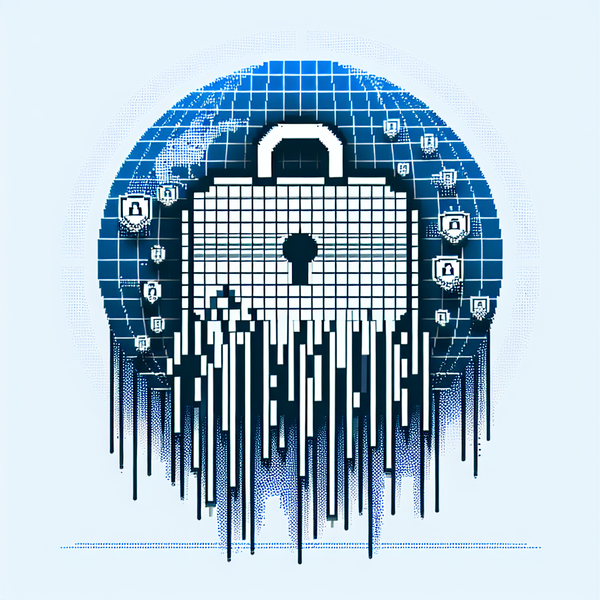Secret CISO 10/31: Conduent & Yale Breaches, OpenAI's Aardvark Hunts Bugs, BIND 9 DNS Exploit Unleashed

Welcome to today's edition of Secret CISO, where we unravel the tangled web of data breaches and cybersecurity innovations. On this Halloween, the real fright comes not from ghosts and goblins, but from the lurking threats in the digital world.
We begin with a chilling tale of data breaches, as Conduent grapples with the exposure of 10 million individuals' sensitive information, while Yale New Haven Health and HCA Healthcare navigate the aftermath of their own breaches with hefty settlements. Meanwhile, a careless mistake by a Ministry of Defence official has potentially endangered thousands of Afghans, highlighting the human factor in data security.
In the realm of cybersecurity advancements, OpenAI's Aardvark emerges as a beacon of hope, an autonomous agent designed to hunt down software vulnerabilities with the precision of a seasoned detective. Yet, even as we celebrate technological strides, vulnerabilities like the critical BIND 9 DNS flaw and the Brash exploit in Chromium browsers remind us of the relentless nature of cyber threats.
Finally, we delve into the world of CVEs, where recent discoveries in Qt, NeuVector, and Veeam Backup & Replication underscore the ongoing battle against vulnerabilities that could lead to catastrophic breaches.
Join us as we explore these stories and more, weaving a narrative that underscores the importance of vigilance and innovation in the ever-evolving landscape of cybersecurity.
Data Breaches
- Conduent Data Breach: How 10 Million Lives Were Exposed and What Comes Next: Conduent experienced a data breach affecting up to 10 million individuals across various US states. The breach involved the theft of sensitive information, including names and Social Security numbers. The company is now facing the challenge of addressing the aftermath and preventing future incidents. Source: Azat TV
- Federal Judge Approves $18M Yale New Haven Health Data Breach Settlement: A federal judge has approved an $18 million settlement for a data breach involving Yale New Haven Health. The breach affected individuals across the United States who received notifications about their compromised data. This settlement aims to compensate those impacted and enhance future data protection measures. Source: Law.com
- Revealed: Afghan Data Breach after MoD Official Left Laptop Open on Train: A significant data breach occurred when a Ministry of Defence official left a laptop open on a train, potentially exposing sensitive information about thousands of Afghans who assisted UK forces. This incident raises serious concerns about data security and the protection of vulnerable individuals. Source: DataBreaches.net
- HCA Healthcare's Settlement of Data Breach Suit Gets Final Nod: HCA Healthcare has received final court approval for a settlement related to a 2023 data breach that compromised the personal information of approximately 11 million patients. The settlement marks a significant step in addressing the breach's impact and implementing stronger data security measures. Source: Bloomberg Law News
- Class Action Targets Pacific Seafood over Data Breach: Pacific Seafood is facing a class action lawsuit following a data breach that exposed sensitive information. The lawsuit, filed in an Oregon District Court, seeks to hold the company accountable for failing to protect customer data and to secure compensation for affected individuals. Source: Intrafish
Security Research
- OpenAI unveils Aardvark, an autonomous GPT-5 agent built to hunt software vulnerabilities: OpenAI has introduced Aardvark, a GPT-5-powered autonomous security researcher designed to identify and patch software vulnerabilities. This agentic model aims to enhance the security of open-source software ecosystems by using advanced language model reasoning and tool-use capabilities. Source: SiliconAngle.
- Public Exploit Code Released for Critical BIND 9 DNS Vulnerability: A critical vulnerability in BIND 9 DNS has been exposed, allowing attackers to inject false DNS entries through predictable query IDs. The release of public exploit code has heightened the urgency for organizations to patch their systems to prevent potential exploitation. Source: eSecurity Planet.
- Anthropic's Claude convinced to exfiltrate private data: Security researcher Johann Rehberger demonstrated a vulnerability in Anthropic's Claude AI, which can be manipulated to exfiltrate private data. This highlights the ongoing challenges in securing AI systems against data breaches and manipulation. Source: The Register.
- Brush exploit can cause any Chromium browser to collapse in 15-60 seconds: Security researcher Jose Pino discovered a severe vulnerability named Brash in Chromium's Blink rendering engine. This exploit can crash browsers within seconds, posing a significant threat to users and necessitating immediate attention from developers. Source: Security Affairs.
- OpenAI's new agent hunts software bugs like a human: OpenAI's Aardvark agent, powered by GPT-5, mimics human-like security research capabilities to detect software bugs and propose patches. This innovation aims to support security teams in managing the increasing complexity of software vulnerabilities. Source: Axios.
Top CVEs
- CVE-2025-23050: QLowEnergyController in Qt before 6.8.2 mishandles malformed Bluetooth ATT commands, leading to an out-of-bounds read or division by zero. This vulnerability has been addressed in versions 5.15.19, 6.5.9, and later. The flaw could potentially allow attackers to exploit Bluetooth communication, posing a risk to devices using affected Qt versions. Source: Vulners.
- CVE-2025-62402: API users via /api/v2/dagReports could perform Dag code execution in the context of the api-server if the api-server was deployed in an environment where Dag files were accessible. This vulnerability could allow unauthorized code execution, posing a significant risk to systems relying on the affected API. Source: Vulners.
- CVE-2025-54469: A vulnerability in NeuVector allows malicious users to inject commands through unsanitized environment variables CLUSTER_RPC_PORT and CLUSTER_LAN_PORT. This flaw could lead to unauthorized command execution, compromising the security of systems using NeuVector's enforcer container. Source: Vulners.
- CVE-2025-48984: A vulnerability allowing remote code execution (RCE) on the Backup Server by an authenticated domain user. This flaw poses a critical risk as it could enable attackers to execute arbitrary code, potentially leading to data breaches or system compromise. Source: Vulners.
- CVE-2025-48983: A vulnerability in the Mount service of Veeam Backup & Replication allows for remote code execution (RCE) on Backup infrastructure hosts by an authenticated domain user. This vulnerability could lead to significant security breaches, allowing attackers to gain control over backup systems. Source: Vulners.
Final Words
As we wrap up today's edition of Secret CISO, it's clear that the landscape of cybersecurity is as dynamic as ever. From the massive data breaches affecting millions, like those at Conduent and HCA Healthcare, to the cutting-edge innovations such as OpenAI's Aardvark, the challenges and advancements in our field are both daunting and exciting.
Each story we covered today highlights the critical importance of vigilance and innovation in protecting sensitive information. Whether it's addressing vulnerabilities in widely-used software or ensuring that sensitive data doesn't fall into the wrong hands, the stakes have never been higher.
We hope you found today's insights valuable and thought-provoking. If you did, please consider sharing this newsletter with your friends and colleagues. By spreading awareness and knowledge, we can all contribute to a more secure digital world.
Thank you for being a part of the Secret CISO community. Stay safe, stay informed, and we'll see you in the next edition!




